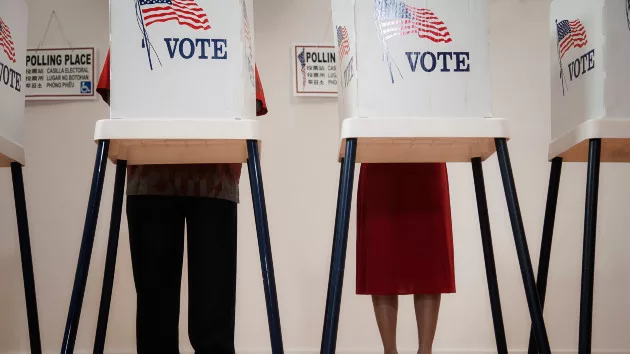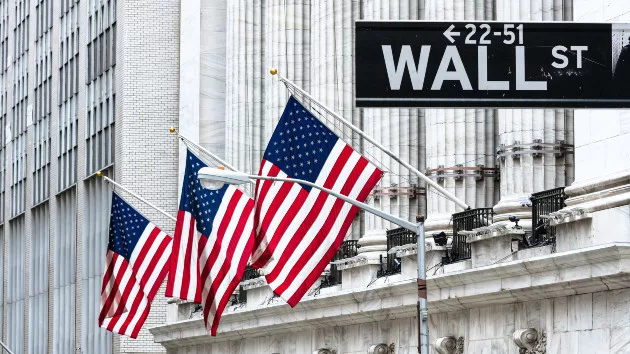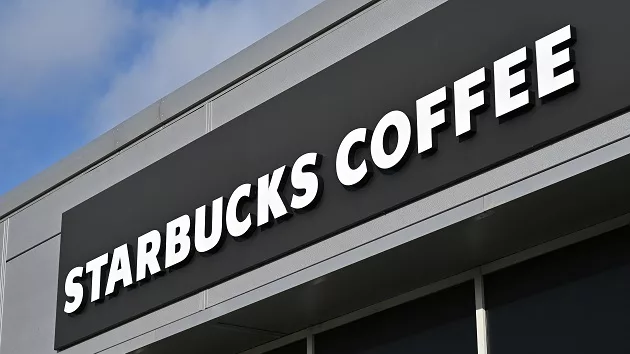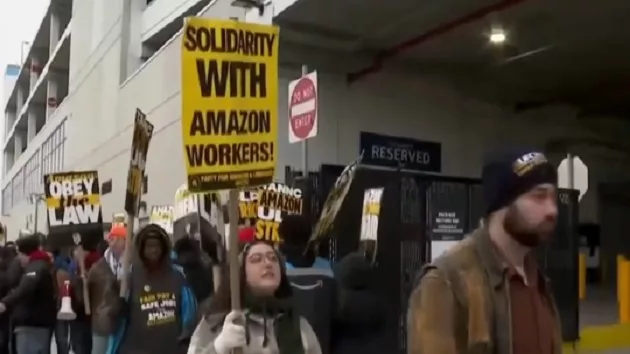(NEW YORK) — Less than a year out from the next presidential election, former President Donald Trump and some Republican allies continue to falsely deny the results of the previous one.
Three in 10 adults believe that President Joe Biden only won the 2020 contest because of election fraud, a Monmouth poll in June found. More than two-thirds of Republicans espouse the debunked claim, the survey showed.
Despite the persistence of such falsehoods, political advertisements featuring incorrect assertions about widespread voter fraud in the 2020 contest will be permitted on Instagram and Facebook, a Meta content policy shows.
Meta, the parent company that controls the platforms, made a policy change allowing political advertisers to say past elections were fraudulently conducted but prohibiting ads that question the validity of future or ongoing elections, the policy says. The Wall Street Journal first reported the policy change.
The move raises concerns about the spread of false election-denial ads on Instagram and Facebook that could erode the public’s trust in U.S. democracy, some researchers who examine misinformation and disinformation told ABC News, noting that election-denial ads could also help fuel violent extremism like that on Jan. 6, 2021.
“I’m really worried that this is one crucial trigger that will make our election even more divisive, causing more conspiracy and disinformation activity,” Hazel Kwon, a professor at Arizona State University who leads its Media, Information, Data and Society Lab, told ABC News.
“The big concern is that this directly affects trust in democratic institutions,” Kwon added.
The researchers cautioned, however, that studies indicate limited influence of online political advertisements on voter sentiment, suggesting that the policy change could impact the electorate less than the immense user base of the platforms may lead some to think.
Some of the experts noted that the circulation of election-denial ads on social media could help shape the wider public conversation even if they do not change the minds of a large share of individual voters.
“I’m confident that there will be malefactors attempting to game the election,” Eric Goldman, a professor at Santa Clara University School of Law who studies tech platforms, told ABC News. “It’s less clear how well this misinformation will work.”
The policy at Meta focuses on upcoming or ongoing elections that can still be impacted by political ads, rather than previous elections that have already become a matter of historical record, the company said in a statement.
In response to ABC News’ request for comment, the company pointed to a blog post in August 2022 detailing the Meta’s approach to that year’s midterm elections.
“We will reject ads encouraging people not to vote or calling into question the legitimacy of the upcoming election,” wrote Nick Clegg, president of global affairs at Meta.
The reported move by Meta coincides with the loosening of election-related content restrictions at other major tech platforms. Google-owned YouTube announced in June that it would halt the removal of content claiming widespread voter fraud in 2020 and other past elections.
A civic integrity policy updated in August by X, formerly known as Twitter, does not address claims of voter fraud.
A potential rise in election-denial content on social media during a hotly contested 2024 election cycle could increase the likelihood of extremist violence, Edward Perez, Twitter’s former product director for civic integrity, which includes its election policies, told ABC News. Perez is now a board member at the OSET Institute, a nonpartisan nonprofit devoted to election security and integrity.
“There’s a very troubling area where we have people who take extremist behavior because they’ve been radicalized by what they’ve read on social media,” Perez said, pointing to the Jan. 6 insurrectionists as well as David DePape, a far-right conspiracy theorist who was convicted on Thursday for attempted kidnapping and assault of the husband of former House Speaker Nancy Pelosi.
The change in policy toward election-denial ads could also contribute to a political environment in which a wider swathe of people adopt the debunked claim of widespread fraud in the 2020 election, some experts said.
Some research has linked news consumption on tech platforms and belief in misinformation. A study by researchers at Northwestern University, released in September 2020, found that individuals who received their news from social media were more likely to believe in misinformation about coronavirus conspiracies and risk factors.
Still, some experts downplayed the influence of political advertising online, pointing to studies that show little effect on voter sentiment or election outcomes.
“Political ads don’t have large observable effects, just in general,” Zeve Sanderson, the executive director at New York University’s Center for Social Media and Politics, told ABC News. Direct posts from prominent people are more likely to sway users than ads, Sanderson added.
A study led by a researcher at Yale University, published last year, found that a nearly $9 million, eight-month ad campaign on social media across five swing states ahead of the 2020 election found “no evidence” that the program increased or decreased average voter turnout.
A separate study examining results from dozens of different political advertisements tested across nearly 60 groups of voters during the 2016 presidential election found small average effects on candidate favorability and voter choices.
While social media ads may hold little direct effect on voters, Kwon said, the election-denial messages could still elevate the false claims within the wider national conversation ahead of the 2024 election.
“If we just consider political ads on Facebook, it may not have a significant effect,” Kwon said. “However, the problem is that once it’s shared, the message can be picked up and propagated by others.”
“It gives more reason for extreme thinkers to talk about and share their opinions,” she added. “It’s a disturbing idea that this could influence public trust in the election process.”
Copyright © 2023, ABC Audio. All rights reserved.






